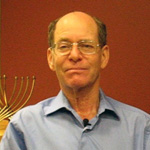
SAN DIEGO — There are two main sources of Jewish information – the Torah and Chinese fortune cookies (which were invented, as the legend goes, by a Jewish baker working his way across China. The crisp shell of the cookie was a reminder of matzo while at the same time he had lottery numbers printed on the back of the paper strip, helping to stimulate the sales of lottery tickets.)
As far as the Torah goes, this is by far the primary source of Jewish messages. Because we are celebrating Passover 2018, and because Jewish wisdom is interpreted from the scrolls and the traditions, allow me to share some significant messages associated with Passover.
First is that when we retell the story in the Haggadah of Moses leading the Jews out of Egypt, the name of Moses is not mentioned even once. Moses is the most important prophet in the Torah – doesn’t he deserve to be elevated to the status of a divine being? Moses, whose ten commandments were praised by no less a modern icon than Einstein saying that Moses had “formulated his model code of social law.” Moses, whose deeds skyrocketed the Hollywood career of Charlton Heston, star of Cecile B. DeMille’s, The Ten Commandments. Yes, that Moses. Yet, Moses is slighted in the Haggadah?
One of the principles of Judaism, we learn, is that no human being is “ooifect.” If you were to ask my wife, she would be the first to agree (it’s a joke, dear). Yet this principle of human imperfection demarcates Judaism from other faiths which teach of the divinity or the equivalency of a human with that of God. This principle is so important to the Jewish understanding of that which is referred to as “God,” that even in the Torah, Moses is specifically portrayed as imperfect. We find out that he lacked self-confidence, was a stutterer and that he needed his brother Aaron to help with his now famous elevator sales pitch presented to the Egyptian Pharaoh – “Let my people go.”
When I say sales pitch, contemporary examples in Western culture show that a sales pitch is accomplished with swift memorable phrases by really persistent people who refuse to take no for an answer. People such as Steve Jobs or Bernie Marcus, co-founder of Home Depot, who practiced what can be described as the art of the “elegant noodnik,” (Noodnik being the Yiddish word for pest, but these guys knew how to do it with enough elegance so that the target market – everybody – was kept fascinated.)
Moses was a leader in this technique. But, was Moses really a “noodnik?” If you have any doubts, don’t ask me, just ask the Pharaoh of Egypt, who after ten plagues, finally got sold on the Moses Plan – which included the rapid departure from Egypt of the Jewish people along with the necessary creation of the world’s first fast food – matzo.
As we gather world-wide to celebrate Passover, we will be blessed to share of the peace and bounty of the times in which we live – with one caution – the possibility of family disputes which are always a constant source of discord, especially in these times, where we tend to be assaulted with annoying trivialities masquerading as news.
Should such a dispute appear at this Passover’s gathering and should it come to harsh personal criticism or bent-out-of-shape feelings, remember that nobody is perfect, not even Moses. But even better; to restore the peace, stand up, and in your best Charlton Heston voice say, “Let he who is without sin, cast the first matzo ball.”
Wishing a Happy Passover to my family, my friends and the readers of San Diego Jewish World!
*
Stanley Tiger is currently writing a book on the interaction of Judaism and modern science.
